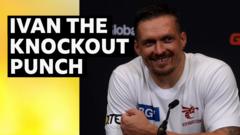Can a 92-Year-Old President's Social Media Makeover Attract Young Cameroonians?

Understanding Paul Biya's Digital Strategy for Re-Election
As the 92-year-old president of Cameroon, Paul Biya, officially declared his intention to seek an eighth term, the political landscape of Cameroon is witnessing an intriguing shift. His social media strategy, which has significantly ramped up in recent months, raises questions about its effectiveness in engaging the young electorate. Biya's increased presence on platforms like Facebook and X (formerly known as Twitter) represents a departure from his prior sporadic engagement. However, experts suggest that these efforts may not resonate with the youth, who make up a significant portion of the population.
The Youth Demographic in Cameroon
Cameroon boasts a youthful population, with over 60% under the age of 25. This demographic represents a crucial voting bloc, as more than half of the electorate is under 30. The implications of this are profound, particularly as young people are increasingly becoming disillusioned with traditional political narratives. Their needs and aspirations are distinct, making it vital for political leaders to adapt their communication strategies accordingly.
The Importance of Authentic Communication
Experts like Rostant Tane emphasize that the primary platform for young Cameroonians is WhatsApp, where presidential communication is nearly absent. The lack of interactivity and personalized responses from Biya's social media accounts creates a barrier between him and the youth. As communication lecturer Hervé Tiwa points out, many young citizens recognize that the posts are not authentically crafted by Biya himself, which diminishes the trustworthiness of his outreach.
Challenges in Political Communication
Political communication should ideally promote democracy and transparency. However, many young people in Cameroon feel that Biya's approach is superficial, focusing more on marketing than on addressing core issues. As communications specialist Ulrich Donfack states, young voters are looking for genuine engagement and concrete action regarding pressing issues like unemployment and corruption.
Addressing the Youth's Concerns
The high unemployment rate in Cameroon is a significant concern for the youth. Graduates with multiple degrees often struggle to find suitable employment, leading to frustration and disillusionment. Young people are not merely seeking flashy graphics or slogans; they are yearning for tangible changes that will improve their lives. Social enterprise founder Falone Ngu notes that while Biya's team has made strides in digital engagement, it still lacks depth in addressing real social problems.
Content Strategy: A Focus on the Past
In an attempt to resonate with the electorate, Biya's social media posts often highlight his achievements over his 43 years in power. However, this retrospective approach may alienate a young audience that was not alive during much of his rule. Communication strategist Aristide Mabatto points out that Biya's team has been sharing excerpts from over 300 speeches throughout his presidency. This strategy, while extensive, may not connect with the current challenges facing young people today.
The Impact of Historical References
One recent example involved Biya referencing a speech from the year 2000, criticizing those who lecture others without leading by example. This post coincidentally followed a public criticism from one of his long-standing allies. Such an approach, while potentially insightful, does not ignite enthusiasm among the youth, who crave real engagement and current solutions to their problems.
Shifts in Media Strategy
Biya's transition from a limited communication approach to a more frequent digital messaging strategy indicates a deliberate effort to reclaim the narrative and appear more accessible. This shift is notable, especially considering the concerns raised about his absence from public view for extended periods, which had led to speculation regarding his health. Supporters have praised this new direction, viewing it as a sign of vitality and leadership.
Perception Versus Reality
Despite the praise from supporters, skepticism is rampant on social media. Comments from users highlight the disconnect between Biya's online presence and the real needs of the population. Many feel that mere digital engagement is insufficient to address the deeper issues plaguing the country. The sentiment is clear: Cameroonians desire actionable solutions rather than just tweets and hashtags.
Looking Ahead to the Election
As the election approaches in October, it remains to be seen whether Biya's efforts will translate into increased support among young voters. The stakes are high, and the outcome could hinge on how effectively he can engage this critical demographic. With a population that is eager for change and concrete action, Biya's challenge is formidable.
Final Thoughts: The Role of Digital Engagement
In conclusion, the evolution of Paul Biya's digital communication strategy is both a response to the changing political landscape and an acknowledgment of the importance of engaging with younger voters. However, the effectiveness of this strategy will depend on its authenticity and its ability to address the real concerns of the electorate. As the young population of Cameroon continues to grow, political leaders must adapt their strategies to remain relevant. Will Biya's digital efforts be enough to win over the youth in the upcoming election?
Frequently Asked Questions
What is the significance of Paul Biya's social media strategy?
Paul Biya's social media strategy aims to connect with the young electorate, who make up a significant portion of Cameroon's population. However, the effectiveness of this strategy is questioned due to a lack of authenticity and genuine engagement.
How many young people in Cameroon are active on social media?
Cameroon has over 5.4 million social media users, with a significant number of young people relying primarily on WhatsApp, where presidential communication is minimal.
What challenges do young Cameroonians face today?
Young Cameroonians face high unemployment rates, corruption, and security concerns. Many graduates struggle to find jobs, leading to frustration and a desire for change.
What do young voters want from political leaders?
Young voters in Cameroon seek genuine engagement, concrete action on pressing issues, and a political narrative that resonates with their experiences and aspirations.
As the political landscape evolves, will digital engagement be enough to sway young voters? #CameroonElections #YouthEngagement #DigitalPolitics
```Published: 2025-07-20 00:09:08 | Category: world



